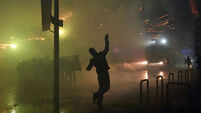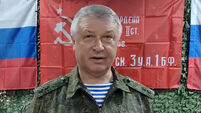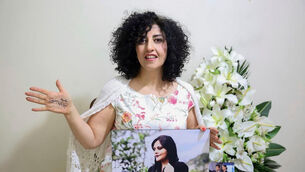Truck bomb blast killed three
Three Iraqis were killed when a truck bomb exploded soon after a US patrol passed by as two UN security experts arrived in the Iraqi capital Baghdad to study the possible return of international staff.
Meanwhile, a top Shiite Muslim leader declared that a US-backed plan for handing power to Iraqis was ”unacceptable”, while two American pilots were killed when their helicopter crashed.














